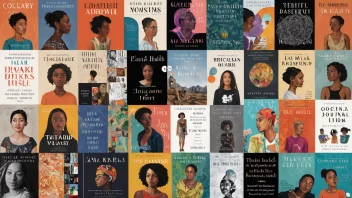The exploration of identity and belonging is a fundamental theme that resonates deeply within the human experience. Bestselling novels often encapsulate this theme, providing readers with narratives that reflect their own struggles, triumphs, and journeys of self-discovery. In this article, we will delve into a selection of bestselling novels that poignantly explore these themes, examining how authors navigate the complexities of identity, culture, and the quest for belonging through their characters' experiences. From literary classics to contemporary hits, these narratives offer a rich tapestry of perspectives that illuminate the multifaceted nature of what it means to belong.
Understanding Identity in Literature
Identity is a complex construct shaped by various factors, including culture, ethnicity, gender, and personal experiences. In literature, identity often serves as a central theme that drives character development and plot progression. Authors explore the concept of identity not just as a static label but as a dynamic and evolving aspect of a character's life. The characters' quests for self-understanding often mirror our own journeys, making literature a powerful medium for exploring this theme.
The Role of Culture and Background
Culture and background play significant roles in shaping one's identity. Many bestselling novels highlight how characters navigate their cultural identities—often resulting in conflict, whether internal or external. For instance, in Chimamanda Ngozi Adichie's Americanah, the protagonist Ifemelu grapples with her Nigerian identity while adapting to life in America. The novel not only addresses the nuances of race and culture but also illustrates how identity can be redefined through the lens of belonging to different cultural spaces.
The Fluidity of Identity
Identity is not fixed; it evolves over time as individuals encounter new experiences and challenges. This fluidity is a key theme in novels like The Namesake by Jhumpa Lahiri, which follows the life of Gogol Ganguli, a first-generation American born to Indian immigrants. Gogol's journey illustrates the tension between his heritage and his desire to assimilate into American culture. As he navigates relationships and personal struggles, readers witness his shifting sense of identity, which ultimately leads to a profound realization of belonging.
Notable Bestselling Novels That Explore Identity and Belonging
Several bestselling novels have masterfully articulated the themes of identity and belonging. Below, we will explore a curated selection of these works, examining how they resonate with readers and contribute to the broader discourse on identity.
1. The Hate U Give by Angie Thomas
This powerful young adult novel tells the story of Starr Carter, a 16-year-old girl who witnesses the police shooting of her best friend. The narrative delves into issues of race, identity, and social justice, as Starr grapples with her dual identity—living in a predominantly black neighborhood while attending a predominantly white school. Through her journey, Thomas addresses the complexities of belonging and the importance of speaking out against injustice.
2. Homegoing by Yaa Gyasi
Homegoing is a sweeping multi-generational tale that traces the lineage of two half-sisters, Effia and Esi, from 18th-century Ghana to modern-day America. Through their divergent paths, Gyasi explores the themes of identity and belonging within the context of colonialism, slavery, and cultural heritage. The novel highlights how the characters' identities are shaped by historical events, and it poignantly illustrates the lasting impact of these legacies on contemporary understandings of self.
3. Pachinko by Min Jin Lee
Set against the backdrop of 20th-century Korea and Japan, Pachinko tells the story of a Korean family struggling to navigate their identity amidst the complexities of colonialism and discrimination. The novel examines themes of belonging as the family endures hardship, loss, and resilience. Lee's exploration of identity is deeply nuanced, showcasing the intersection of nationality, culture, and familial bonds.
4. Little Fires Everywhere by Celeste Ng
This contemporary novel delves into the lives of two families in a suburban Ohio community, exploring themes of race, privilege, and motherhood. Through the character of Mia Warren, a single mother and artist, Ng examines the complexities of identity and belonging as Mia navigates her role as a parent while also confronting societal expectations. The novel highlights the tensions between individual desires and societal norms, making it a poignant exploration of self-identity.
The Impact of Diverse Voices
In recent years, there has been a growing recognition of the importance of diverse voices in literature. Bestselling novels by authors from various backgrounds have contributed to the rich tapestry of narratives exploring identity and belonging. These works not only provide representation for marginalized communities but also challenge readers to confront their own biases and understandings of identity.
Expanding the Literary Canon
As the literary landscape continues to evolve, it is vital to recognize and celebrate authors who bring unique perspectives to the forefront. Writers such as Ocean Vuong, Tommy Orange, and Jesmyn Ward have made significant contributions to the discourse on identity through their works. Their narratives explore the intersections of race, culture, and belonging, encouraging readers to broaden their understanding of what it means to belong in a diverse world.
Encouraging Empathy and Connection
Through literature, readers are given the opportunity to step into the shoes of characters whose experiences may differ vastly from their own. This ability to empathize with diverse perspectives fosters connection and understanding, reminding us of our shared humanity. Bestselling novels that explore identity and belonging serve as catalysts for important conversations about race, culture, and community, ultimately enriching our collective experience as readers.
Conclusion
Bestselling novels that explore identity and belonging offer profound insights into the human experience. Through the lens of relatable characters and compelling narratives, these works challenge us to reflect on our own identities while fostering a sense of connection to others. As we navigate the complexities of our modern world, literature remains a vital space for understanding and celebrating the diverse tapestry of identities that shape our lives. By engaging with these narratives, readers are not only entertained but also invited to embark on their journeys of self-discovery and belonging.






